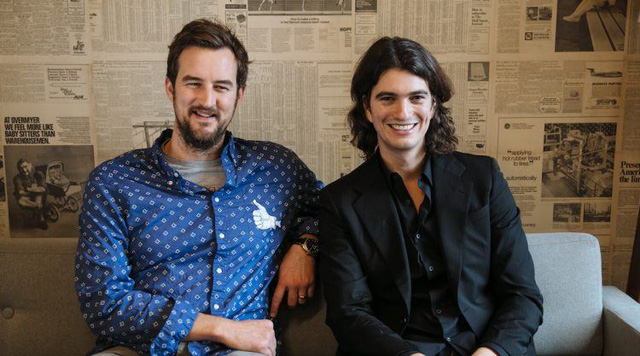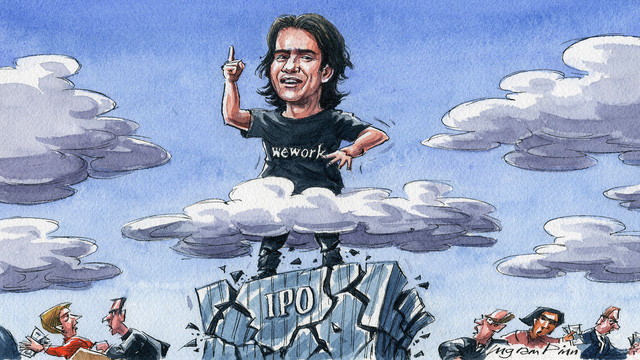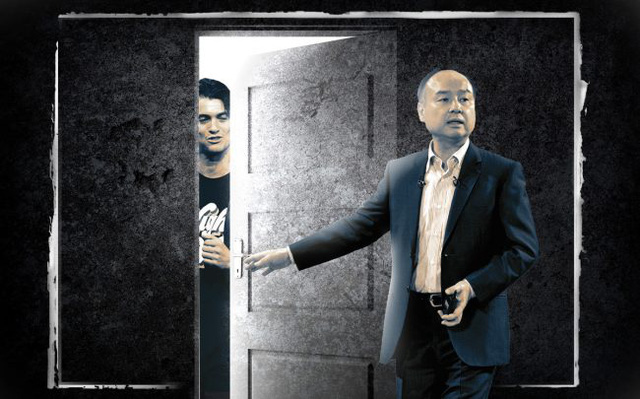WeWork’s zombie startup WeWork’s decade of getting up and down dogs: When brilliant dreams turned into a nightmare in just 6 weeks
- Tram Ho
The past decade has been a time of development for a series of world tech startups. The popularity of smartphones around the world has helped billions of people connect with each other, and at the same time facilitated the development of many new business models.
However, this start-up wave subsided somewhat in the second half of the decade when a series of shocking scandals were uncovered, leading to the downfall of many companies and the departure of founders. . Among them, it is impossible not to mention WeWork – the first “zombie unicorn” of the technology village.

Let’s take a look at WeWork’s journey over the past decade through the remarkable milestones below.
Adam Neumann arrived in New York City in 2001, after completing his service in the Israeli army. Initially, he founded a company called Krawlers, which sells knee-padded clothing for babies who can crawl.
Neumann was then working in the same building as the architect Miguel McKelvey, who later co-founded WeWork. The two become friends.

Adam Neumann (right) and Miguel McKelvey.
Neumann also has an interest in real estate and enjoyed an empty warehouse on Water Street while working in Dumbo, Brooklyn. Not long after, he and McKelvey reached the landlord to inquire about the warehouse. The two signed an agreement to start a real estate business here, taking the company name Green Desk.
In 2008, Green Desk was the original embodiment of WeWork. This is a company that provides a sustainable co-working space with recycled furniture and green office supplies.
The customer, called a “member”, can rent a desk or private office from month to month. Neumann and McKelvey make money by charging those spaces more than their rent.
Green Desk provides most of the things that individuals and small companies need: fully equipped offices, meeting rooms, high-speed internet access, printing and the kitchen. Some time later, the Green Desk has flourished.
Neumann and McKelvey realize that what attracts people to Green Desk is not necessarily sustainability, but how they want to be part of the community.
In 2010, the two sold their shares in the company to found WeWork. Owning $ 300,000 and without any real estate on hand, Neumann and McKelvey persuaded a landlord to rent out a floor of the building for testing. WeWork’s first site was in Manhattan’s SoHo, with rickety flooring and peeling paint.
From the outset, Neumann and McKelvey envisioned their rental office as part of an ecosystem of apartments, gyms and even barber shops, catering to the concept of a shared life. in a common space.

An office for lease of WeWork at the present time.
A month since launch, the business has been profitable. Since then, Neumann and McKelvey have stepped up calling for investors and developing the WeWork brand. Over the next two years, the company opened four new locations and attracted the attention of Benchmark, a leading venture capital firm that made early bets on Twitter and Uber.
During the first round of fundraising, Benchmark poured $ 17 million into WeWork. The company continued to open additional locations and had 10,000 members in 2014. That same year, WeWork opened its first international office in London.
In an effort to diversify its revenue streams, WeWork entered the residential real estate sector in 2016. WeLive offers fully furnished micro apartments. People can join these communities and have immediate access to facilities such as free internet, maid services and making new friends.
By 2017, WeWork announced WeGrow, a school for children from 2 to 11 years old. At the end of the year, WeWork bought Lord & Taylor’s flagship store building in New York for $ 850 million. At the same time, they opened their first gym, “Rise by We”, located at 85 Broad Street, New York with yoga, boxing and spa classes.
In September 2018, WeWork became the largest private office rental company in Manhattan after becoming the company with the most office space in London and Washington earlier that year.
In December 2018, WeWork silently submitted an IPO filing and transformed into WeCompany with 3 separate business lines: WeWork for renting offices; WeLive, operates two apartment buildings with joint design and WeGrow, operates an elementary school in New York.

WeGrow model of We Company.
Only in April 2019, Neumann announced that WeWork had submitted an IPO filing.
In July 2019, Bloomberg revealed that WeWork wanted an IPO in September. At the time, the company had a revenue of 1.82 billion USD and a “fill rate” of 80%. Thanks to those results, SoftBank Group decided to invest more than $ 10 billion, bringing WeWork’s value to $ 47 billion, a worldwide record.
On August 14, 2019, WeWork’s prospectus was filed with the SEC for IPO, revealing a loss of $ 2.9 billion in 3 years and $ 690 million in the first 6 months of 2019. The company is said to consider the level valuation of 20-30 billion USD in the upcoming IPO but then it has dropped to below 20 billion USD.
After submitting the prospectus, a bad nightmare struck WeWork as the company faced intense financial scrutiny and criticism of Neumann’s managerial abilities.
In just 6 short weeks, from being a startup being hailed with “heavenly” valuations, WeWork was on the brink of bankruptcy. They started selling down businesses they bought, laying off a bunch of employees and shutting WeGrow down.
In September 2019, WeWork surprised us by announcing to postpone the IPO plan indefinitely. Not long after, cofounder Adam Neumann also announced his departure as CEO. In just a short time, from being valued at $ 47 billion by SoftBank, WeWork plunged unceasingly when the bailout packages proposed by Japanese corporations and JPMorrgan set the company price at around $ 8 billion.

Adam Neumann’s “dream” crumbled after WeWork postponed the IPO indefinitely and faced bankruptcy.
The cause of this crisis is the chronic loss of business results and investor concerns about Neumann’s managerial ability.
By the end of October 2019, WeWork had become a tech startup becoming the world’s first undead unicorn. “Zombie startup” is a name used to refer to companies that are constantly raising money, focusing more on investors than customers. They generate enough revenue to cover operating costs, but not enough to generate large returns for investors. In other words, “zombie startup” is a man who cannot be a ghost, a ghost is not a ghost.
2020 was a dismal year for WeWork. While former CEO Adam Neumann sued SoftBank after the group canceled the $ 3 billion acquisition of his and other shareholders at WeWork, the company’s business was heavily influenced by the Covid-19 translation.

SoftBank bosses and Adam Neumann.
At the end of September 2020, struggling with financial difficulties, WeWork sold a majority of its shares in China to current shareholder Trustbridge Partners for $ 200 million.
Some experts said that although it did not fall into bankruptcy, it can be said that WeWork’s glorious era has almost ended. It’s a pity, but it’s the price WeWork pays for unsustainable brand development.
Source : Genk
